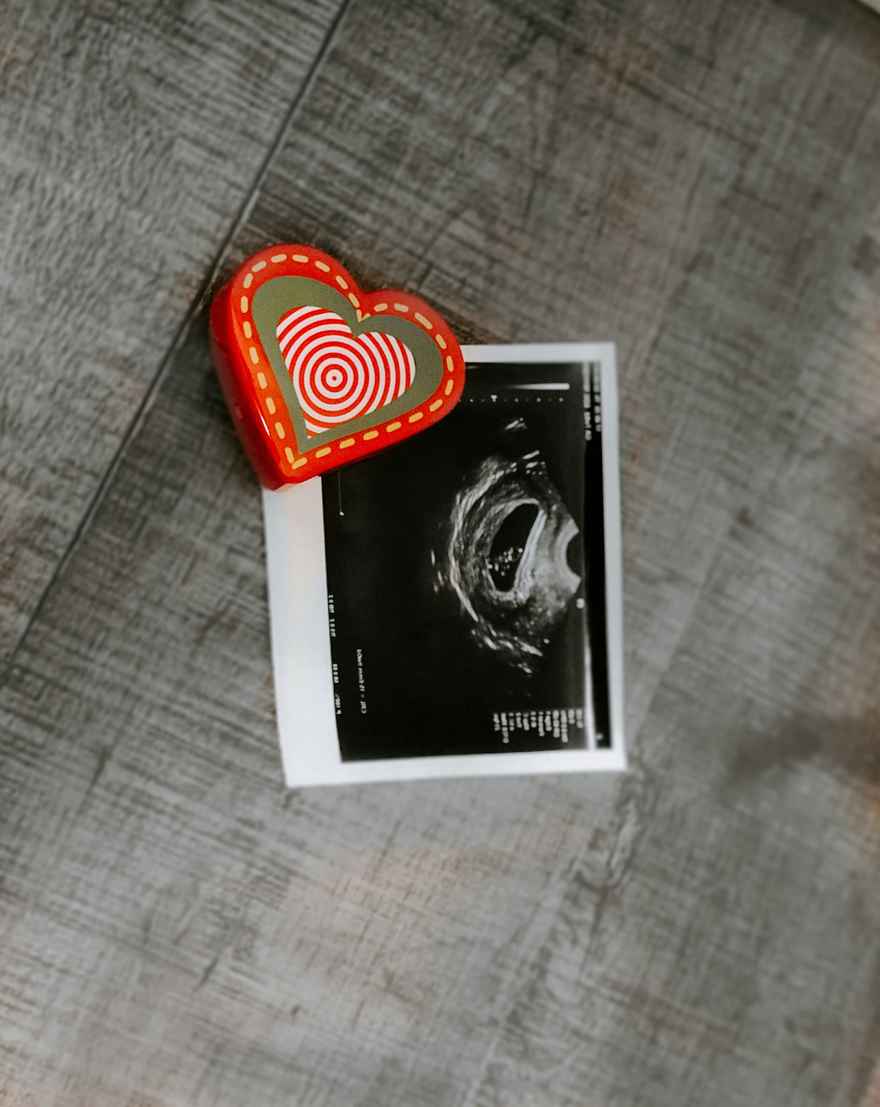"What about the Children?!" - The ethics and outcomes of surrogacy

A recent post by prominent birth-related Instagram account @trusting_birth suggested, as many others have done previously, that surrogacy is unethical. This was the case, in their opinion, regardless of whether the surrogate carried the pregnancy through commercial or altruistic avenues. As commercial surrogacy is illegal in Australia, this article will address altruistic surrogacy, whereby the surrogate[1] does not receive payment for their role in carrying or birthing the baby.
The original poster’s argument against surrogacy was that babies would experience the transition to their intended parents after birth as traumatic. As someone who spends much of their professional time helping parents plan how they will protect the gestational mother/birth parent-baby dyad[2] in postpartum, I too have considered this concern and held reservations about surrogacy.
The comments were a bloodbath.
The responses (many of which I surmise are from gestational mothers if they’re following a birth-related account) can be summarised as follows:
“Not everyone can have a baby. If you’re one of them you need to get over it, not farm one then rip it away from its true mother and deny it breastmilk.”
Sentiments like this suggest that unless you can conceive, birth and breastfeed a baby you aren't a "real" mum. It renders adoptive and formula feeding parents as "less than", and paints families formed through assisted reproductive technologies and surrogacy as inherently "wrong". Also, if you hadn't noticed, telling someone who is desperate to have a baby to “just get over it” is seriously fucked up.
There is so much to unpack here; I have barely scratched the surface.
What’s interesting in all of this “what about the children?!” debate is that seemingly none of the commentators or their commenters have actually asked people who were born by surrogacy if and how it affected them before reaching their conclusions. Research into what young adults born by surrogacy think about the way they were born exists. Of the participants (average age 20 years old) born via surrogacy who were interviewed as part of longitudinal research by Jadva et al (2023), 80% indicated neutrality or “lack of concern” towards their conception and birth. The remaining 20% reported positive feelings.
Young adults in this study were all raised by cis mother/father couples. They had predominantly been told about their conception and birth during their preschool years, which the authors state “has been found to be associated with more positive mother–child relationships in adolescence (Ilioi et al., 2017), and early adulthood (Golombok et al., in press), and can enable the information to be incorporated into the child’s sense of identity (Rumball and Adair, 1999).” Only one in 15 participants reported a lack of genetic or gestational connection negatively impacting their relationship with their mother, and the severity of this impact was not described.
In response to the results of this study and others like it, some may argue the children of surrogacy have been “brainwashed” into seeing something “abnormal” as “normal”. If this is so, is being brainwashed into believing you were hugely wanted, thoroughly prepared for and brought into being by a team of loving, cooperative adults a bad thing? By contrast, 20% of live births in Australia are unplanned each year, and many of these babies will grow up to know their existence was accidental or even, in the case of those born as a result of assault or being denied access to abortion, unwanted. The tendency to mark a carefully orchestrated path to life as “damaging” and all others as “miraculous” or “happy accidents” is curious indeed.
Another argument may be that while their conscious minds may not detect an issue with the event of post-birth separation, the bodies of both child and surrogate will “remember” it and this will continue to impact them. This theory is not supported by the research either, with a 2021 research review finding “no evidence of substantial adverse medical or psychological outcomes among women who are gestational carriers or among the children they give birth to.” A 2016 systematic review of 55 studies looking into the outcomes of surrogacy also reported that “at the age of 10 years there were no major psychological differences between children born after surrogacy and children born after other types of assisted reproductive technology (ART) or after natural conception.”
Another 2023 study by D’Amore and colleagues “investigated child behavior problems, parenting styles, coparenting, and couple relationship satisfaction in 67 European gay father families [whose children were born] via surrogacy and 67 European heterosexual parent families [whose children were born] via unassisted conception.” All children in the study were aged 1.5–10 years, and the two groups were matched for child age and gender. Study results indicated the children born by surrogacy and raised by gay fathers had fewer externalizing problems (i.e., aggression, rule-breaking) and fewer internalizing problems (i.e., anxiety, depression) compared to the spontaneously conceived children of the cis het parents. The gay fathers also “reported more effective parenting styles, greater coparenting quality, and higher couple relationship satisfaction compared to heterosexual parents… These results refute concerns about possible detrimental effects on child development of surrogacy conception or of being raised by gay fathers.”

Clearly, a great chasm exists between the theoretical “surrogacy is child abuse” social media memo and the outcomes of published, peer-reviewed research conducted with the approval of ethics committees. Fellow Newcastle-based doula Sarah Newling responded to the original post providing context to Australian surrogacy protocols and her experience with family-building through surrogacy. I reached out to her for further comment, which she has thoughtfully provided. In Sarah’s own words:
I feel the statement made in the Instagram post in question is very black and white. I've both been an altruistic surrogate and am currently supporting a surrogacy team to birth, for the second time.
Surrogacy is not for everyone, nor is it “one size fits all”. Even under the umbrella of “altruistic surrogacy”, there are two branches. The first is traditional surrogacy, where the surrogate’s egg is used. The more common type in Australia is gestational surrogacy using IVF conception, where the egg comes from an intended mother or parent, or an egg donor. This means in most cases of surrogacy in Australia, the surrogate is not genetically related to the baby.
In all of my interactions with the Australian Surrogacy Community, I witnessed relationships far more nuanced than this post suggests. First, consider the heartfelt longing of individuals who are unable to conceive (for whatever reason), often accompanied by complex grief, loss and a feeling of helplessness. A surrogate, by her own volition, can offer these intending parents (and their families) hope and possibility, in doing so she may also teach her own children about giving and helping others.
Altruistic surrogacy is a ‘group pregnancy’ – the currency of which is friendship and trust. Australian laws surrounding surrogacy require months, if not years, of preparation, counselling and an ethics review before an IVF transfer can take place (laws vary by state). I always believed that despite the reliance on science, the baby’s soul decides whether to come forth to be carried and birthed.
Intended parents and surrogates consider every scenario together: what will we do if there is a problem with the baby? If the surrogate becomes unwell? If there is pregnancy loss, stillbirth, caesarean, or multiple babies? Every single outcome is thought through with the utmost care and deliberation. There is also meticulous planning for pregnancy, birth and integration, including the provision for breastmilk and a gradual transition from womb to world. The fourth trimester needs of both baby and surrogate are carefully considered and prepared for by all involved.
In most surrogacies, the shared vision and ideal scenario is that surrogates have an ongoing relationship with the parents and a lasting bond with baby. The surrogate forms part of the child's extended family (like an 'auntie'). The baby grows up knowing their birth story. Their story is one of pride that is shared openly, in love, light and truth, so these children know their roots and have an integrated sense of belonging.”
While not everyone will resonate with the idea of a “soul” deciding “whether to come forth”, it is clear children raised on foundations such as these are hardly likely to have their emotional and mental health or material needs neglected. The same can be said for the pre-existing children of those who experience their mothers acting as surrogates, whose welfare is prioritised during the surrogacy experience. When reviewed 5-15 years down the track, these kids also go on to score well in relation to their psychological well-being too.
Anti-surrogacy activists will scream black and blue for us to “think of the children!!!!!”. Some even go so far as to parallel the transition to the intended parents to that of “kidnapping”. Meanwhile the vast majority of children are doing fine, and probably not giving not their birth story much thought. As one young adult born via surrogacy told Jadva et al (2023):
“…it’s nothing I really dwell on. I usually have more important things to really care about and as I said, it doesn’t affect anything’.

If all indicators point to good health for everyone involved, why does this topic cause such furore?
I suspect if we dug deeper it wouldn’t be as much about the “poor babies” (who are much wanted) or the “exploited” altruistic surrogates (who are informed and willing autonomous adults who don’t receive payment) as it is about the characteristics of the intended parents.
If the only way to become “true” or “real” parents is to have the “right” body parts that “work” to carry a baby to term, who is seen as undeserving of parenthood? The answer: those with MRKH, cancer history, chronic illness, disability or other fertility issues preventing them from conceiving and carrying their own babies. When spelled out this way, the anti-surrogacy argument reeks of medical moralizing and ableism.[3]
It also has queerphobic implications. In pedestaling biological, gestational, cis (“real”) mothers as the one and only essential caregiver, all other parental roles are othered and made less than. How, they ask, could a child possibly live well without such a key and irreplaceable figure? Pair this with the framing of surrogacy as akin to child abuse, and LGBTQIA+ people who seek to build their families using it are painted as monsters. This serves to reinforce heteronormative ideas about who should become parents and how it should happen.
Interviewed recently on the You’re Wrong About podcast, reproductive rights journalist Megan Burbank presents the case that the anti-abortion (sorry, “pro-life”) movement was never about babies, but was always about political control. My analysis of the concerns and the reality indicates that the same rings true here. The building of a family through surrogacy exercises reproductive rights for those who exist outside the abled, fertile, cis M/F relationship norm, and the reproductive rights of surrogates too. It threatens the demise of the patriarchally-headed, nuclear family with defined gendered roles, and therefore the perceived stability of some of those who (whether consciously or unconsciously) draw strength, stability and a sense of self from their defined place in it as “good” and “proper” parents.
Perhaps if “traumatised children” were your primary concern, better things to do than hating on surrogacy might be lobbying your government to, I dunno, stop supporting genocide and knowingly allowing children to starve? To accept more refugees? To address domestic violence? To end child poverty and houselessness, both of which are political decisions not unavoidable economic situations?
I digress. Social media sensationalists love to separate into “good” and “bad” parents and parenting methods, but that’s not how things work offline. In so many parts of conceiving, carrying, birthing and raising children, there is nuance between “optimal” and “harmful". There is a big grey area in between that needs to be brought out for discussion. I would expect most parents who have a baby through surrogacy would have loved to be able to make and carry one easily within their own family unit. They would recognise that the situation for their baby is suboptimal, and as Sarah described above, put extensive plans in place with the surrogate to facilitate the smoothest possible transition and integration to their intended family unit to the best of their ability.
Perhaps instead of yelling “you’re traumatising babies!” at the surrogacy community from the sidelines, commentators and those who, like me, who have held concerns, would be better off remembering their own advice: that supported, loving parents and caregivers are what help children thrive. With that in mind, we could stop wringing our hands in worry and ask useful questions, such as:
What support does everyone involved in pregnancy, birth and post-birth transitional time need to ensure best outcomes for them and the baby/ies?
How can hospital policy, health care teams and birth workers ensure every person and their role is respected during the pregnancy, birth and immediate postpartum time?
Considering all new parents need help to be okay, what practical support and meals can we provide the intended parents with?
Are any of the intended parents seeking support to induce lactation, and who is best placed to provide that?
What postpartum support does the surrogate need to recouperate?
What can we do to support the welfare of existing children in both families?
These are the conversations I’d love us to be having. Perhaps, after reading, you would too.
Footnotes
[1] I am using the word “surrogate” throughout this article as the words “surrogate mother” is a misnomer – the surrogate never considers themself to be the baby’s mother during the surrogacy process. See ""Not my child to give away”: A qualitative analysis of gestational surrogates’ experiences" by Yee, Hemalal & Librach (2020) for more.
[2] The "mother-baby dyad" is a western interpretation of a biological need or expectation for closeness between a baby and their mother postnatally. While concentrated time together helps in the establishment of breastmilk supply in societies where only one mother or parent is expected to feed the new baby, in many cultures baby care has historically been shared by multiple adult caregivers from birth, including sharing feeding duties.
[3] See momfluencer-culture analyst Sara Petersen’s 2022 article “On blaming the victim for their reproductive struggles” for a more thorough dissection of ableism in the "natural" birthing subculture, with reference to another post by @trusting_birth.
Additional Resources
- If you would like to learn more about surrogacy in Australia, The Australian Surrogacy Podcast is the place to go. From their show description: "Sarah Jefford presents the Australian Surrogacy Podcast, sharing stories from intended parents and surrogates from around Australia. Sarah is a surrogate and a surrogacy lawyer... she shares information and surrogacy stories from around the country."
- Katrina Hale is a Victorian-based psychologist and advocate who offers multiple helpful resources and links related to surrogacy on her website.
Categories
- News (33)
- Breastfeeding (22)
- Post-partum (69)
- Sleep (14)
- Food (7)
- Partners (19)
- Rehab (2)
- Parenting (51)
- Birth (21)
- Pandemic (14)
- Research Update (5)
- Decolonisation (2)
- Covid (14)
- Education (8)
- Motherhood (43)
- vaccines (2)
- Children (9)
- self employed (2)
- government policy (3)
- feminism (10)
- abortion (3)
- lockdown (3)
- infancy (1)
- gentle parenting (10)
- infertility (1)
- parenthood (9)
- isolation (2)
- village (5)
- Pregnancy (7)
- Podcast (2)
- Mental Health (5)
- Career (2)
- Mental Load (1)
- Community (1)
- Technology (1)
- Doula (2)
0 comments
Leave a comment
Please log in or register to post a comment